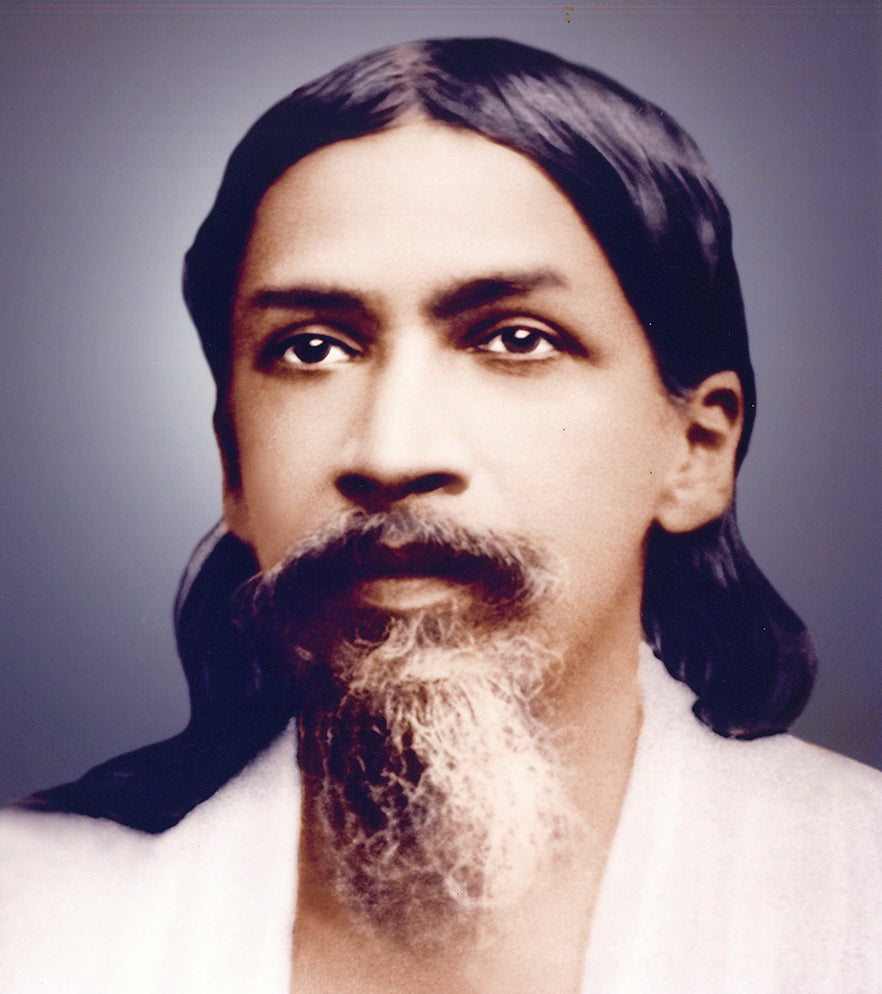
August 15, 1872
Sri Aurobindo
Born in Calcutta, Sri Aurobindo’s early years took him to England, where he received a classical education at St. Paul’s School and King’s College, Cambridge. Returning to India in 1893, he served the princely state of Baroda as a civil servant and professor. But his heart yearned for India’s freedom. By 1906, he had become a leading figure in the Indian nationalist movement, boldly demanding complete independence — a vision he voiced in the revolutionary journal Bande Mataram. His spiritual journey began around the same time, and by 1910, he had withdrawn from politics and moved to Pondicherry to devote himself entirely to the practice of Yoga.
Over the next four decades, Sri Aurobindo developed the Integral Yoga — a path that seeks not just liberation but the divine transformation of human nature itself. In 1926, with the arrival of The Mother as his spiritual collaborator, he founded the Sri Aurobindo Ashram. His profound writings, including The Life Divine, The Synthesis of Yoga, and Savitri, continue to illuminate seekers around the world. He left his physical body on December 5, 1950, but his vision and presence live on.
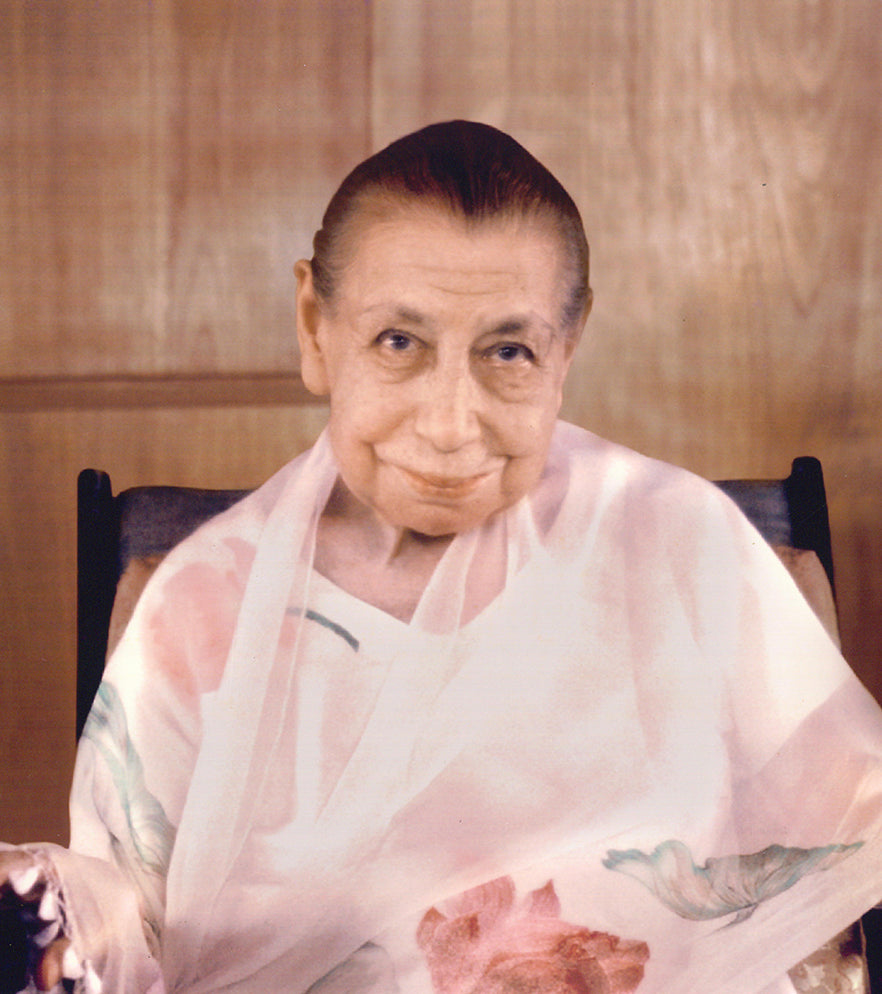
February 21, 1878
The Mother (Mirra Alfassa)
Born Mirra Alfassa on February 21, 1878, in Paris, The Mother was a gifted artist, musician, and writer from a young age. Her early interests in occultism and spiritual science led her to Algeria, where she studied with the mystics Max and Alma Theon. In her heart, however, she was always seeking the Divine. That quest brought her to Pondicherry in 1914, where she met Sri Aurobindo — instantly recognizing him as her inner guide. After a few years in France and Japan due to World War I, she returned to India in 1920 and remained at his side.
When the Sri Aurobindo Ashram was formally established in 1926, Sri Aurobindo entrusted The Mother with its material and spiritual leadership. Her unwavering guidance shaped the Ashram into a vibrant spiritual community. She later founded the Sri Aurobindo International Centre of Education in 1952, and in 1968, she gave birth to the international township of Auroville — a living experiment in human unity. The Mother left her body on November 17, 1973, leaving behind a vast spiritual legacy that continues to inspire and uplift.
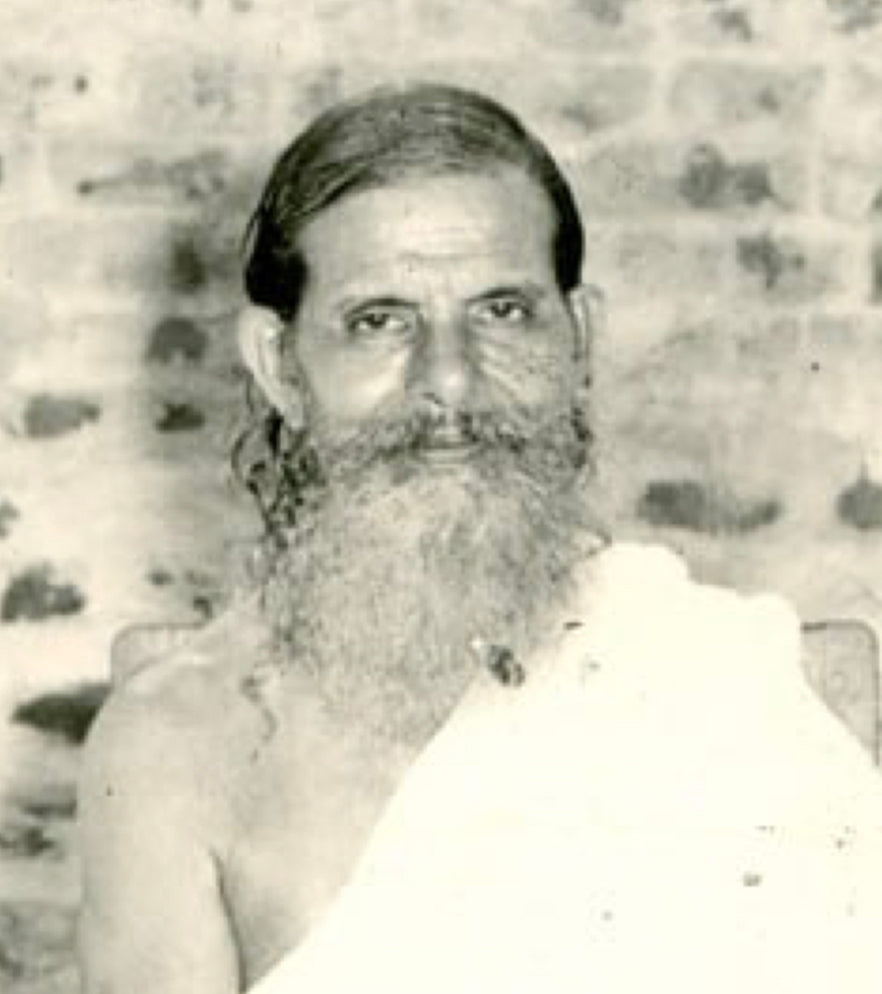
August 14, 1908
Babaji Maharaj (Sri Ramakrushna Das)
Known lovingly as Babaji Maharaj, Sri Ramakrishna Das was a spiritual light for many in Odisha. Born in Rairpur village on August 14, 1908, his inner journey began with intense sadhana in Ayodhya and culminated in divine surrender at Sri Aurobindo Ashram in 1945. His deep devotion to The Mother and Sri Aurobindo transformed not just his own life, but inspired generations of seekers in Odisha. He left his mortal body on November 8, 1998, leaving behind a spiritual legacy steeped in grace.
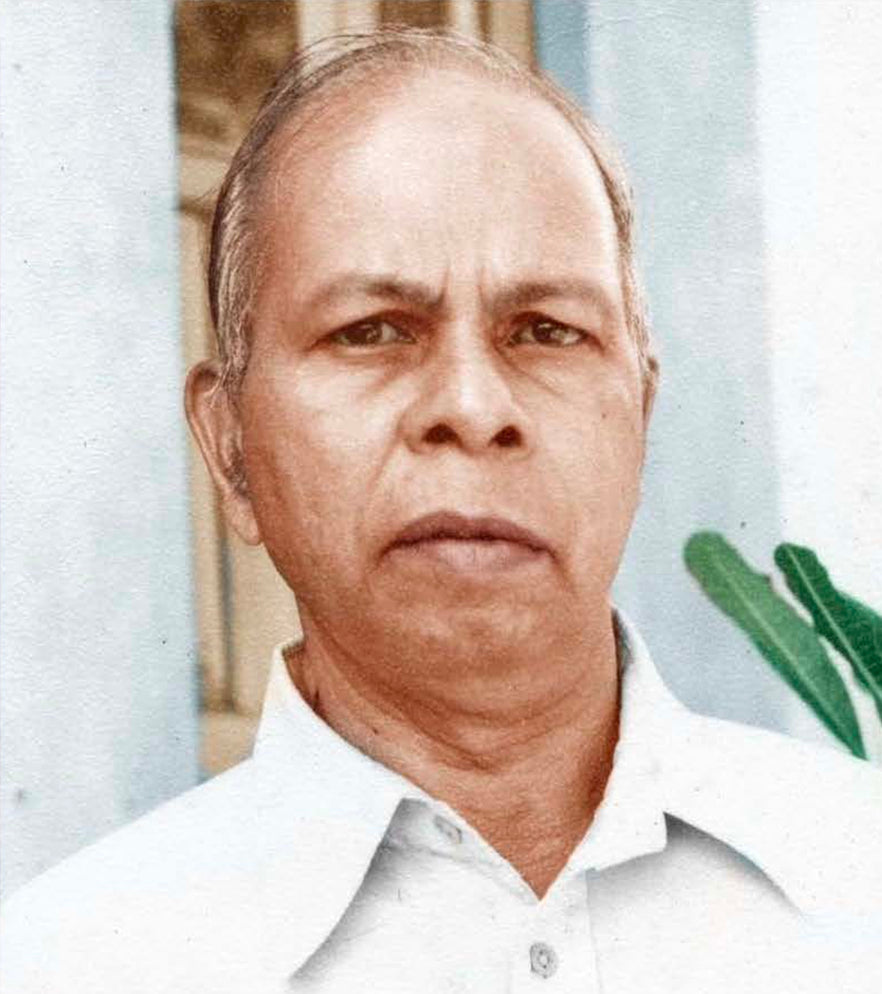
April 30, 1924
Prapatti (Sri Kangali Charana Pati)
Born as Kangali Charana Pati on April 30, 1924, in the village of Bharogole, Prapatti was a philosopher, teacher, and spiritual bridge between Odisha and the Sri Aurobindo Ashram. Gifted with intellectual brilliance, he became a professor of philosophy before permanently moving to the Ashram in 1954. The Mother named him ‘Prapatti’—the surrendered one—on his 46th birthday. As editor of Nabajyoti, he created a channel of divine communication for Odia devotees, enriching their connection with the Ashram. He passed away at the Ashram on June 28, 1989.
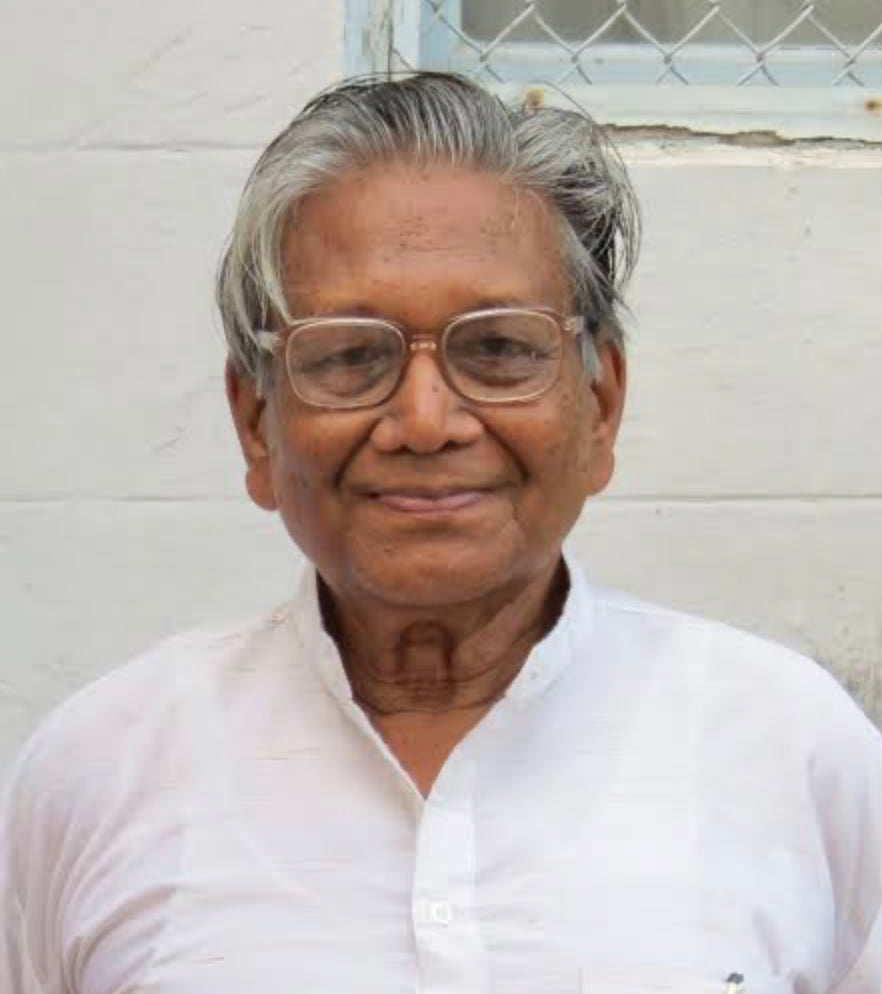
February 27, 1934
Manoj Das
A master storyteller with roots in coastal Odisha, Manoj Das transcended linguistic boundaries with his works in both English and Odia. His narratives shimmer with Indian philosophy, mysticism, and spiritual depth. A recipient of the Sahitya Akademi Award and Padma Bhushan, he remains one of India’s most revered literary figures. Through his timeless tales, readers continue to rediscover the soul of Indian tradition and the universal truths of human experience.
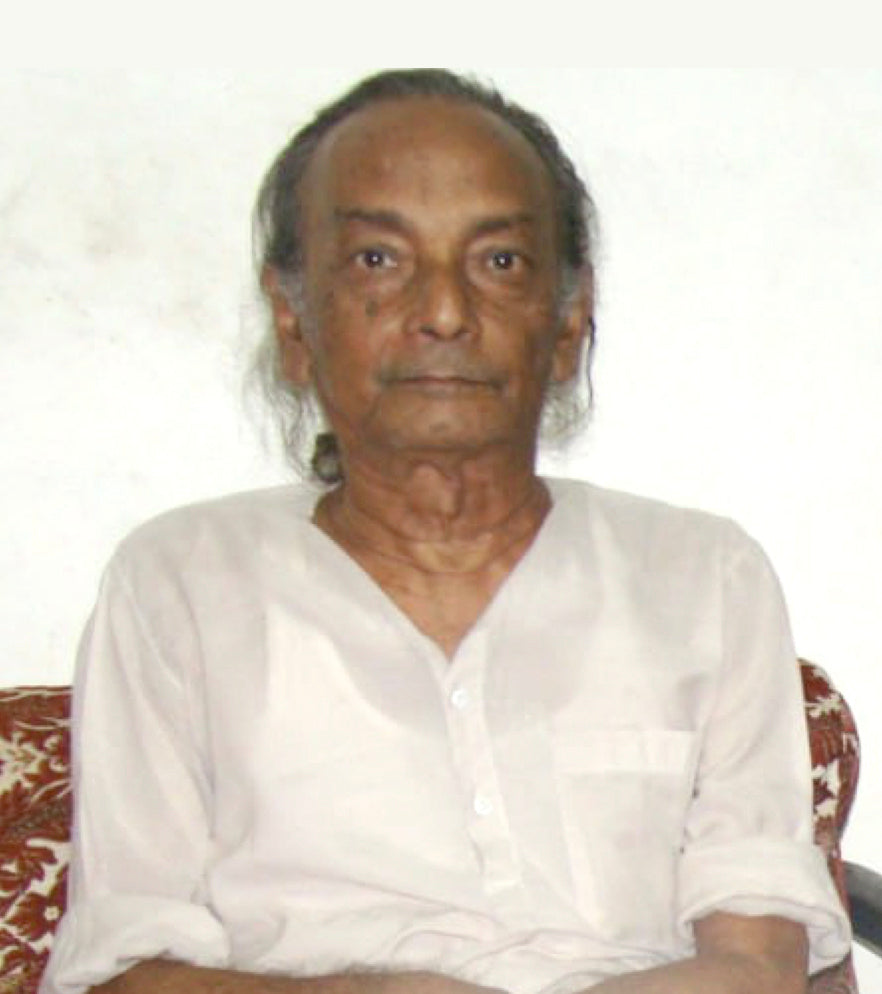
January 25, 1934
Biswambhar Samanta
The goal of Integral Yoga is vast and all-encompassing—an enduring path of meditation leading to the divine life, where the grace of the Supreme Lord and the Divine Mother is the sole true guide for the sincere seeker. The compositions of Shri Biswambhara Samanta, deeply immersed in the radiance of Purna Yoga, form an inexhaustible treasure chest of the teachings and discourses of The Mother and Sri Aurobindo. These writings cover a wide range of profound subjects—the ultimate goal of life, the sacred path, the meditations of Integral Yoga, the intricate challenges of human society, the spiritual mission of India, as well as the realms of education, culture, art, and literature.
This luminous collection stands as a beacon for aspirants and ardent seekers who earnestly tread the yogic path. It is the heartfelt wish that these articles will awaken and deepen the consciousness of the yogic life—guiding disciples, seekers, and followers inspired by the sublime ideals of Integral Yoga, illuminating their journey with higher wisdom and divine insight.
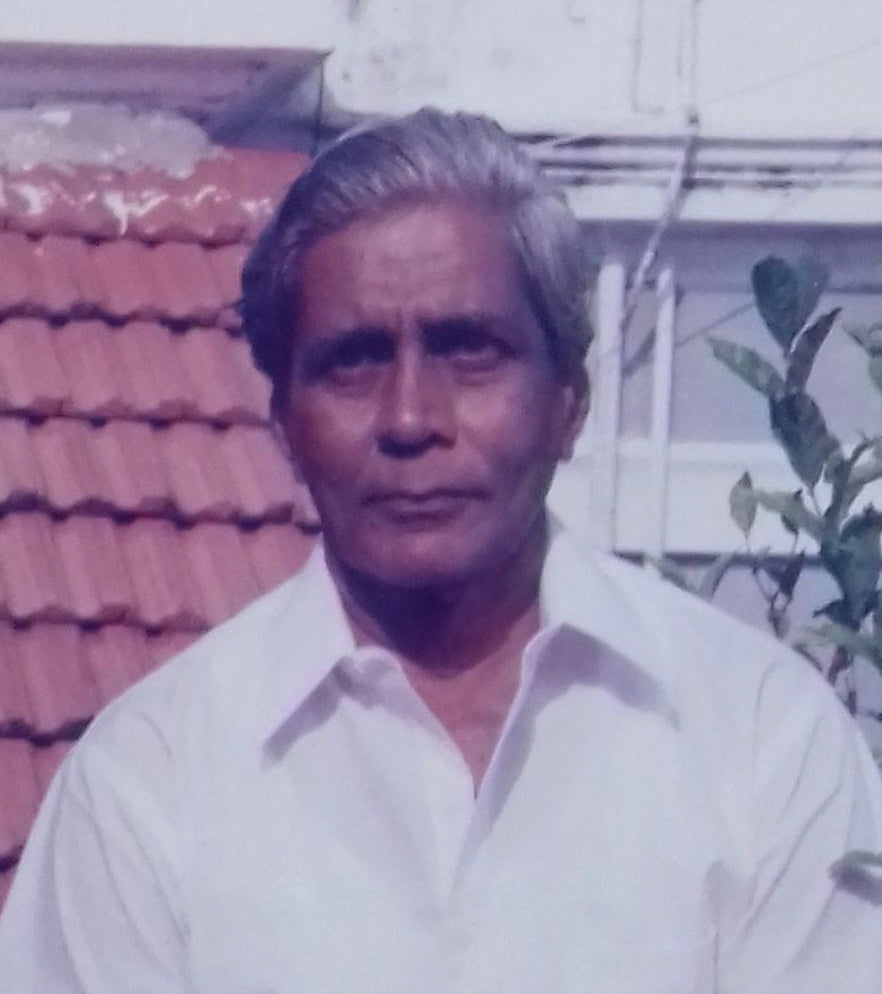
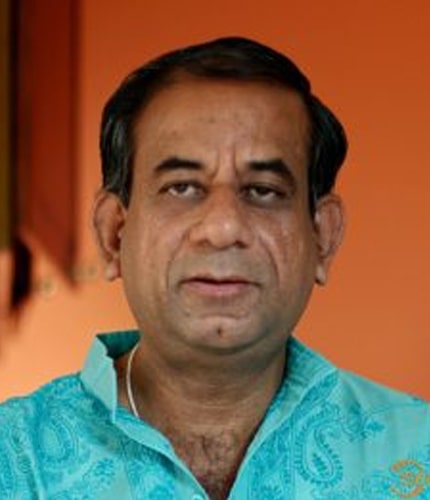
Dr. Alok Pandey
Dr. Alok Pandey, a psychiatrist by profession and a seeker at heart embarked on a profound journey through Integral Yoga. Confronted with the mysteries of life and death during his medical career, his quest for deeper meaning led him to the luminous vision of Sri Aurobindo and The Mother. In their teachings, he found not just answers, but peace. Today, he serves at the Sri Aurobindo International Institute of Integral Health and Research in Pondicherry, where he blends science and spirituality in the realm of holistic health.
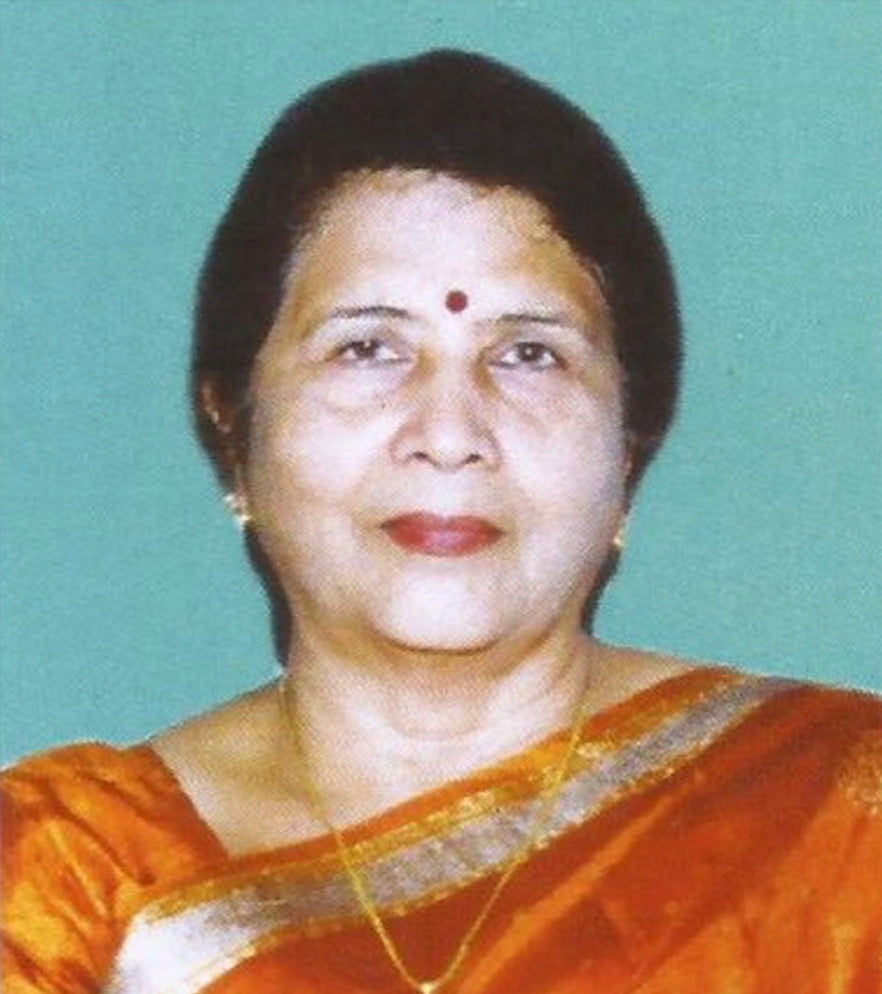
July 16, 1947
Dr. Archana Nayak
A shining star in the realm of Odia literature, Dr. Archana Nayak was born near the tranquil Chilka Lake in Balugaon. With a brilliant academic journey through Cuttack’s top institutions, she emerged as a celebrated educator and literary voice. Her fiction, essays, and plays are known for their emotional depth, clarity, and powerful human themes. Loved for her lyrical expression and heartfelt stories, she remains a guiding force for many in Odisha’s literary world.
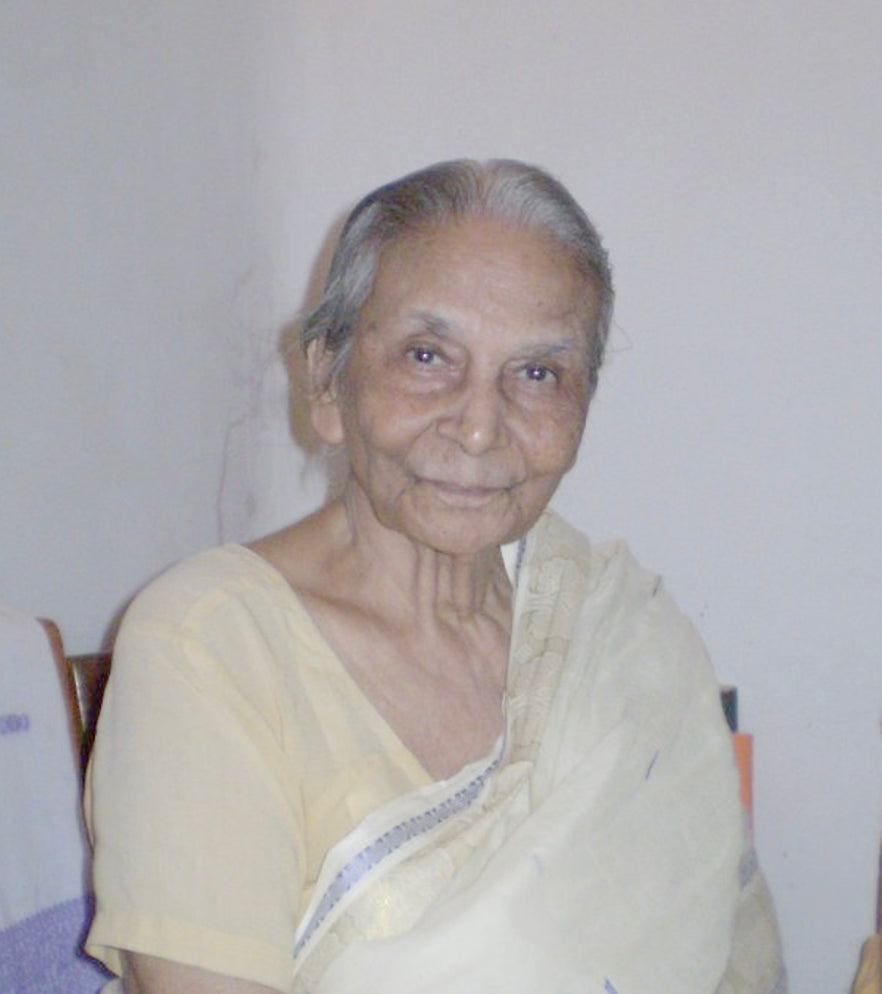
December 14, 1933
Sobha Mitra
Shobha Mitra’s life was a beautiful harmony of music and spirituality. Born to Amarendranath and Ashalata Mitra, she became a cornerstone of the music culture at Sri Aurobindo Ashram and later Auroville. As a teacher, composer, and spiritual seeker, her melodies carried the message of the Divine. Her work not only nurtured musical talent but also embodied the teachings of Sri Aurobindo and The Mother through sound and silence.

Prativa Das
A devoted member of the Sri Aurobindo Ashram, Pratibha Das has dedicated her literary energy to chronicling the lives of The Mother and Sri Aurobindo in Odia. Her five-volume biography of The Mother stands as a significant contribution to Odia spiritual literature, offering seekers a deeper connection to the divine presence she so reverently serves.

Bailochana Parida
An inmate of the Sri Aurobindo Ashram, Bailochana Parida shares a deep spiritual bond with The Mother and Sri Aurobindo. With heartfelt devotion, he too authored a five-volume Odia biography of The Mother, making her life and vision more accessible to Odia-speaking devotees across the world.
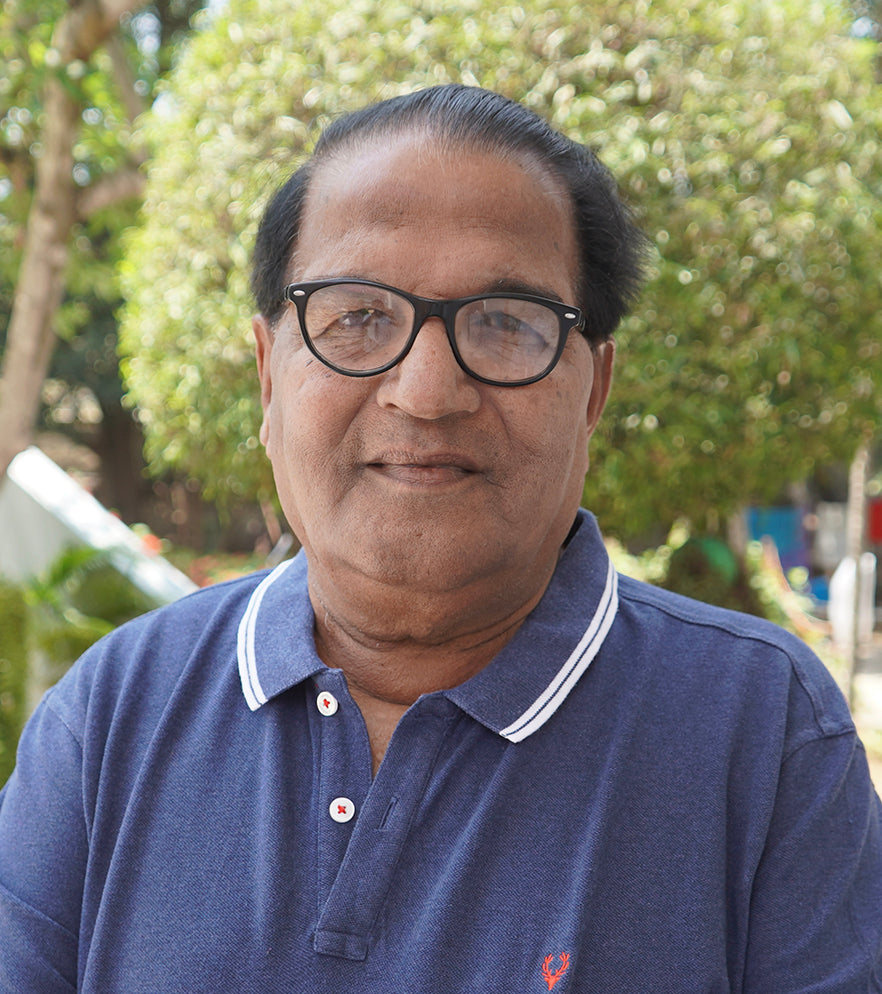
December 31, 1946
Prasad Tripathy
From mathematics to metaphysics, Sri Prasad Tripathy’s journey reflects a unique blend of logic and light. Drawn to the teachings of The Mother and Sri Aurobindo since his student days, he worked in the Indian Census department before dedicating himself to Integral Education. As the Secretary of the New Life Education Trust, he played a pivotal role in nurturing the Sri Aurobindo Integral Schools. A poet and author, his writings breathe devotion and clarity.
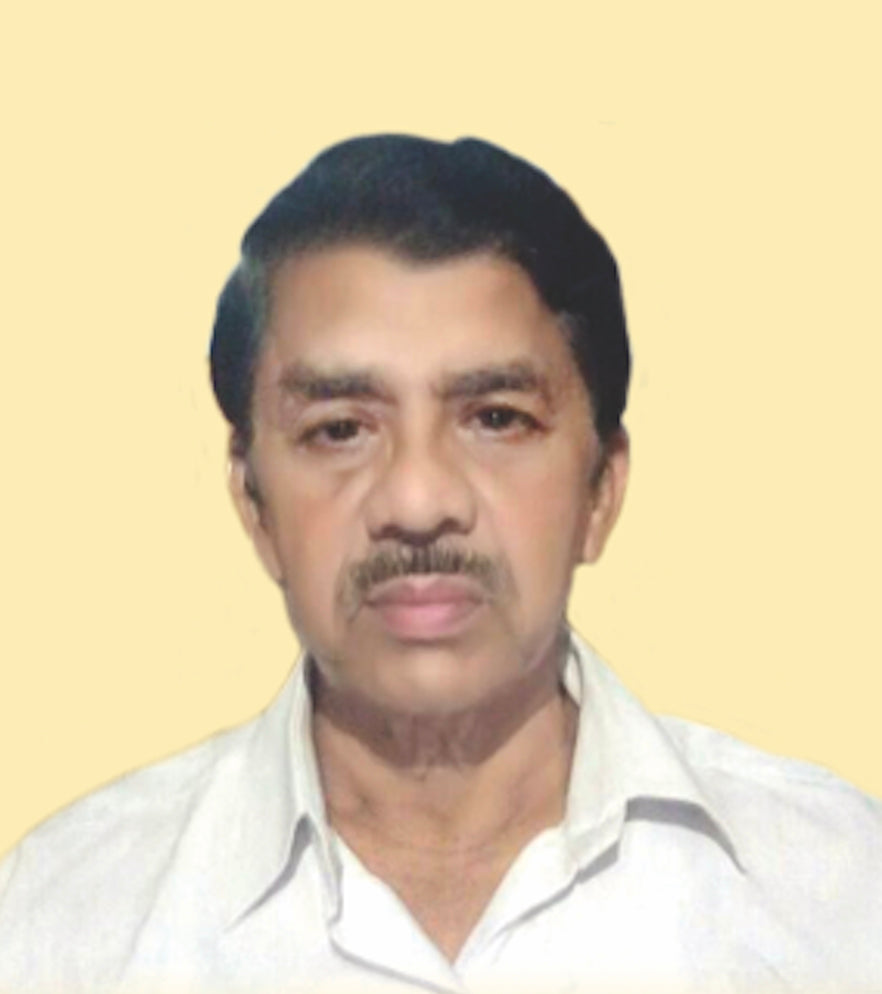
February 14, 1949
Golok Bihari Sahoo
Born in the serene village of Gharapada in Bhadrak, Odisha, Dr. Golak Bihari Sahoo dedicated his life to the pursuit of literature and education. A scholar of English, he served across several government colleges of Odisha, eventually retiring as the Head of the Postgraduate Department of English at Bhadrak Autonomous College in 2007. His doctoral research delved into the poetic evolution of Sri Aurobindo, offering a critical analysis of his short poems. A prolific writer, Dr. Sahoo has authored numerous books in both English and Odia, enriching the literary world with his deep insights and academic brilliance.
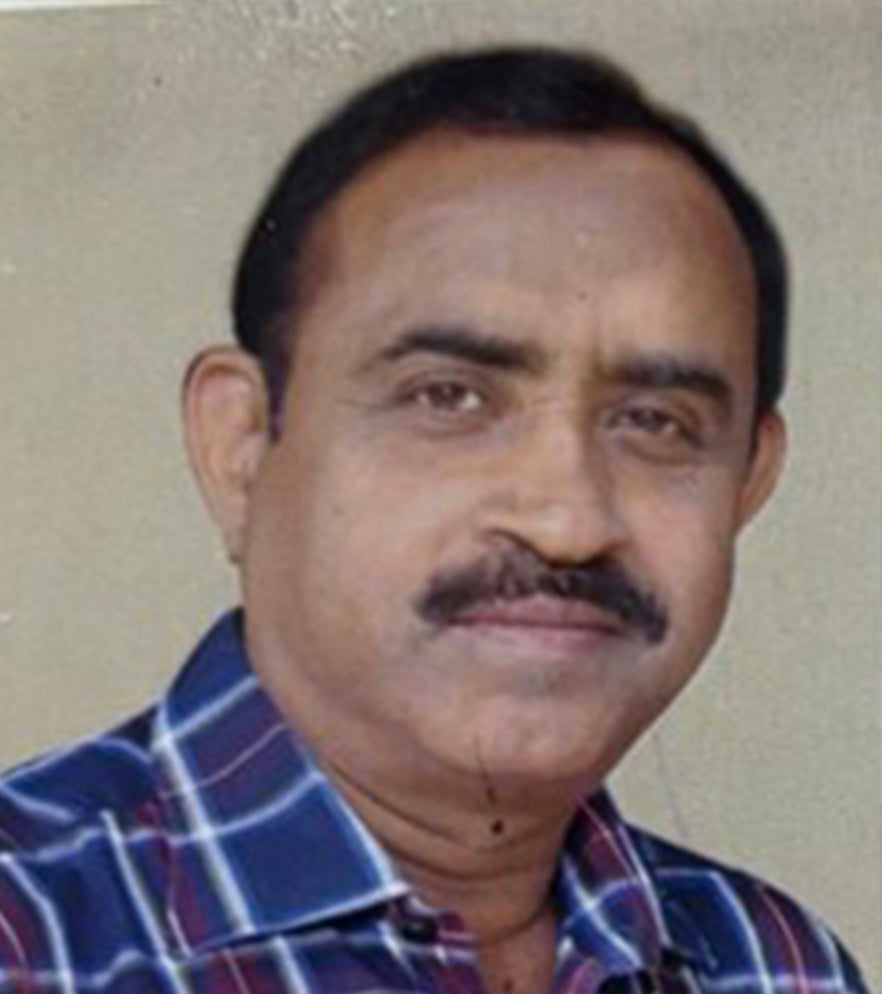
Dr. Sarat Chandra Rath
A stalwart of Odia literature, Dr. Sarat Chandra Rath is a revered academician and former Head of the Odia Department at Utkal University, Bhubaneswar. With M.A., M.Phil, and Ph.D. degrees to his name, his literary journey spans decades of dedicated writing, research, and teaching. Deeply drawn to Odia lyrical poetry — Giti Kabita — he has authored over 40 books and contributed to hundreds of journals and anthologies. His collected works include Sarat Giti Samagra and Sarat Katha Samagra, with several titles now translated into English.
Dr. Rath’s writings are widely celebrated for their lyrical quality and philosophical depth. A regular columnist and beloved literary speaker, he remains an active voice in Odisha’s cultural landscape. A devoted follower of Sri Aurobindo and The Mother, his spiritual explorations have also found form in compilations based on their teachings. His achievements are recognized with numerous accolades, including the Utkal University Gold Medal (1977), Bhaktakabi Memorial Gold Medal (1977), and the Odisha Sahitya Academy Award (2023). Even today, he continues to nurture Odia literature through multiple organizations and initiatives.
